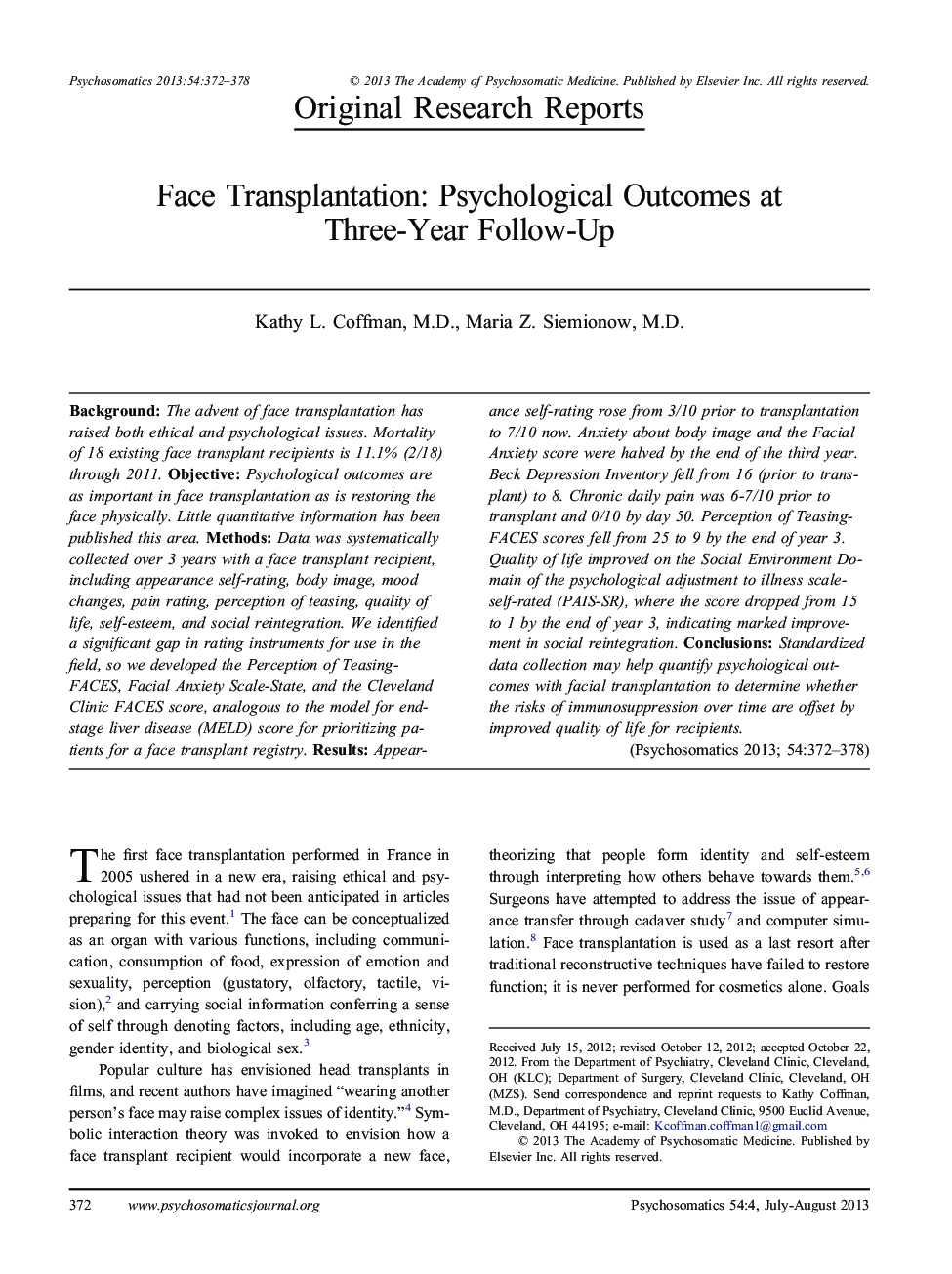| Article ID | Journal | Published Year | Pages | File Type |
|---|---|---|---|---|
| 337920 | Psychosomatics | 2013 | 7 Pages |
BackgroundThe advent of face transplantation has raised both ethical and psychological issues. Mortality of 18 existing face transplant recipients is 11.1% (2/18) through 2011.ObjectivePsychological outcomes are as important in face transplantation as is restoring the face physically. Little quantitative information has been published this area.MethodsData was systematically collected over 3 years with a face transplant recipient, including appearance self-rating, body image, mood changes, pain rating, perception of teasing, quality of life, self-esteem, and social reintegration. We identified a significant gap in rating instruments for use in the field, so we developed the Perception of Teasing-FACES, Facial Anxiety Scale-State, and the Cleveland Clinic FACES score, analogous to the model for end-stage liver disease (MELD) score for prioritizing patients for a face transplant registry.ResultsAppearance self-rating rose from 3/10 prior to transplantation to 7/10 now. Anxiety about body image and the Facial Anxiety score were halved by the end of the third year. Beck Depression Inventory fell from 16 (prior to transplant) to 8. Chronic daily pain was 6-7/10 prior to transplant and 0/10 by day 50. Perception of Teasing-FACES scores fell from 25 to 9 by the end of year 3. Quality of life improved on the Social Environment Domain of the psychological adjustment to illness scale-self-rated (PAIS-SR), where the score dropped from 15 to 1 by the end of year 3, indicating marked improvement in social reintegration.ConclusionsStandardized data collection may help quantify psychological outcomes with facial transplantation to determine whether the risks of immunosuppression over time are offset by improved quality of life for recipients.
